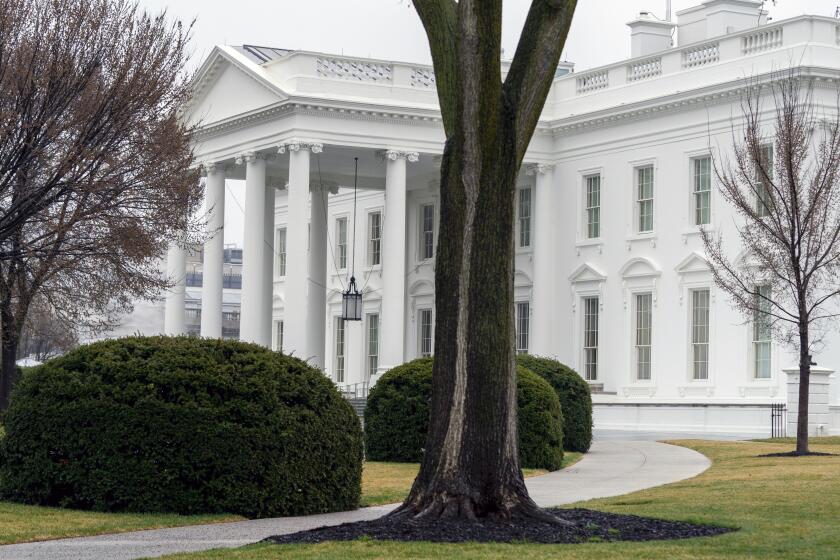Is Forbes cachet worth $45 million?
Former presidential candidate and flat-tax guru Steve Forbes has leveraged his famous surname to sell ideas for two decades, and Thursday was no different.
Forbes was in San Diego to promote his media company’s alliance with Bridgepoint Education Inc., a for-profit university system based in Carmel Mountain with about 69,000 students enrolled in traditional and online courses around the nation.
Under the deal, Bridgepoint agreed to pay Forbes Media at least $45 million over 12 years for the right to rename its Ashford University business college as the Forbes School of Business. Students will get access to Forbes magazine archives, as well as webinars, lectures and guest teachers from its stable of 1,200 online and print contributors.
This alliance inverts the typical deal, where a rich guy donates cash and gets a building named after him. Then again, companies pay for brands all the time, and Forbes remains a powerful global brand.
The magazine was founded in 1917 by B.C. Forbes (Steve’s grandfather) to profile business leaders. His son Malcolm built it into the nation’s premier business magazine with edgy, well-written articles and splashy lists such as the Forbes 400 richest Americans.
Steve Forbes took over in 1990, in time to preside over the magazine’s peak and slow financial decline. Last month, investors put Forbes Media up for sale.
Its transition to digital media has been successful by some measures; a Web search on any financial topic usually points to a Forbes contributor.
Steve Forbes became a household name in politics after spending tens of millions of his personal wealth pursuing the Republican presidential nomination in 1996 and 2000.
Forbes relentlessly promoted tax reform, health savings accounts and other fiscal innovations.
His political quest failed, but the ideas lasted.
In a phone interview before Thursday’s event, Forbes exuded every bit of the Reagan-esque optimism that drove his campaigns.
Others see gloom in Washington and fear in the economy. But Forbes said political “turbulence” may by 2016 spur important changes to education, the tax code and health care.
“It’s going to be an amazing period,” Forbes said.
I wish I shared his outlook. Aside from our massive unfunded debt to future retirees, there’s no federal policy more damaging to the economy than our convoluted tax code.
Forbes famously advocates a radical streamlining to one “flat” tax tier, making the IRS, tax lawyers and accountants largely unnecessary.
Recent talk in Washington of tax reform is going nowhere.
Yet Forbes sees momentum building. Lawmakers in both parties embraced tax reforms from the Simpson-Bowles commission, which President Barack Obama formed in 2010 and mostly ignored.
“I think there’s a growing consensus that the big blockage is at the White House,” Forbes said. He expects tax reform to be a major issue in the 2016 presidential campaign, particularly with U.S. corporations stashing $1 trillion overseas to escape the developed world’s highest corporate tax rates.
Forbes also predicts health insurance fixes in response to Obamacare Plans will be portable, and workers won’t have to take what employers offer.
People also want education fixed, Forbes said.
“If you took a surgeon from 100 years ago and put him in an operating room today, the only thing he would recognize is the human body,” Forbes said. Yet the modern classroom is essentially the same.
So far, much innovation has come from for-profit schools like Bridgepoint, which offer most classes online and spend far more on marketing than on direct student instruction. But now prominent nonprofits like Georgia Tech are testing online degrees.
The market will decide whether the Forbes name conveys valuable cachet.
I think Malcolm Forbes would have approved.
Get U-T Business in your inbox on Mondays
Get ready for your week with the week’s top business stories from San Diego and California, in your inbox Monday mornings.
You may occasionally receive promotional content from the San Diego Union-Tribune.







